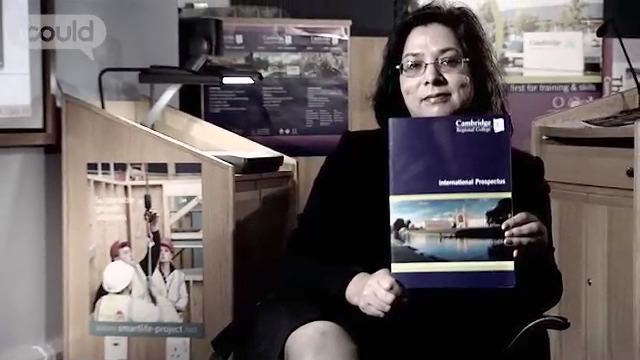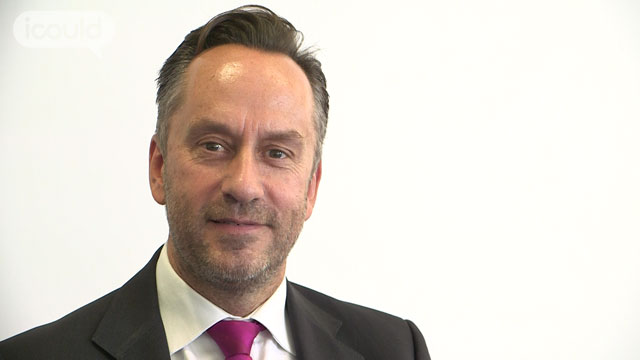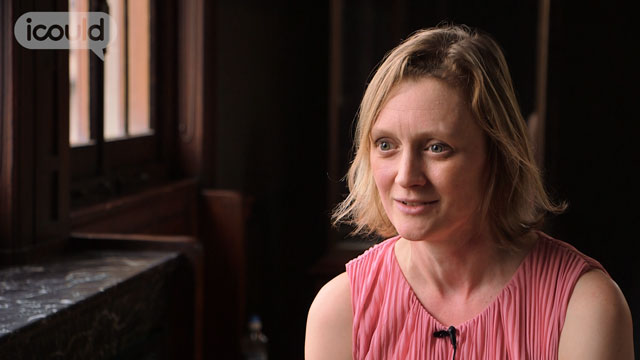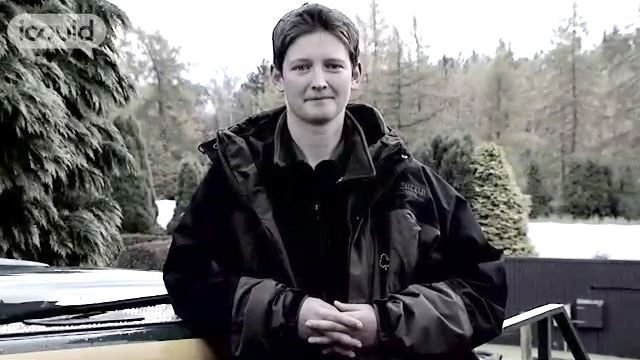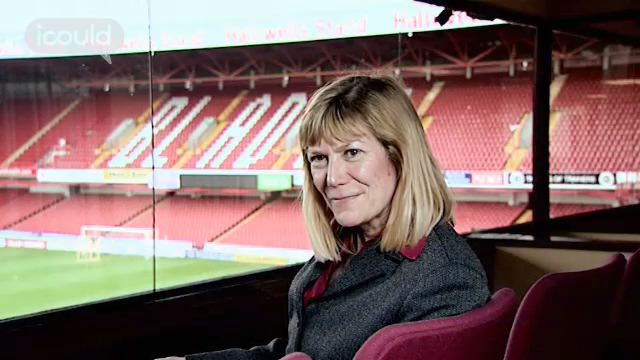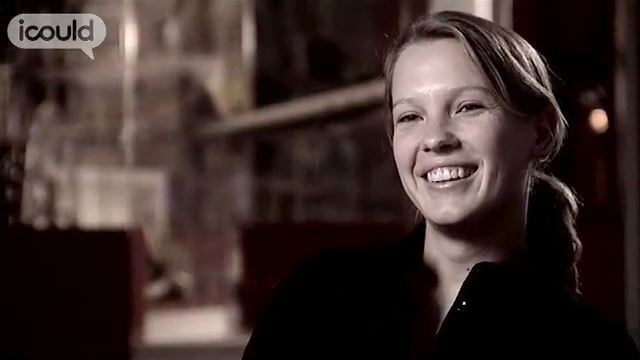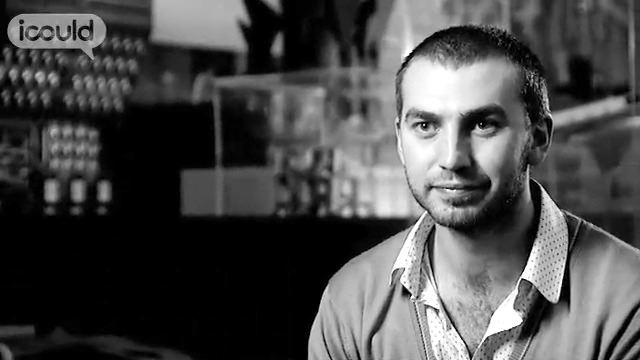Explore: Education
Director of Learning and Visitor Experience
V&A Museum
info Issues viewing the video?
| Time Code | INTERVIEW WITH EMMAJANE AVERY |
| 00:02 | My name’s Emmajane Avery, I’m Director of Learning and Visitor Experience here at the V&A. |
| 00:07 | Well my job entails running learning programmes, the whole of the education programmes for the museum and for the public and also visitor experience. So that is looking after front of house, so the gallery assistants and the volunteers that you see in the galleries. |
| 00:26 | The best thing about working for the V&A is definitely the collection. With this broad range, I mean I don’t think anybody would go into museums who didn’t have a passion for objects, history, collections and the best thing about learning and visitor experience is to be able to bring those collections alive for the public. |
| 00:47 | At school, I didn’t really have a sense about what I wanted to do. I studied a quite peculiar subject at university, called Anglo-Saxon, Norse and Celtic, so it was very early mediaeval history and literature and I didn’t know what on earth I was going to do with that, but museums perhaps was one of the only things perhaps, that you might be able to do with quite an unusual subject like that. So after I’d finished that course, I did an MA in something called museology, so it’s the history of collecting and quite practical museum skills such as putting on exhibitions, running education programmes. It was a very practical course at the University of East Anglia and so then it was quite clear what I wanted to do. |
| 01:34 | So we have an internship programme and an apprenticeship programme that we run here at the museum and we also do a variety of careers days, so because the V&A was established to inspire the next generation of designers, we have fantastic careers days where young people can come and hear designers give talks, workshops, portfolio advice an things like that, so that young people aged 1 to 24 can think about whether they want to enter the creative industries, learn what it’s like to work in the creative industries and hear about pathways into those industries. So we have one a year that’s for secondary school students and one that’s for slightly older students, who have definitely made that choice to go into the creative industries and they’re a little bit further along in their thinking about how they might go about that sort of career. |
| 02:28 | It depends on the roles. Obviously within learning, you know, some people are the project managers, some people are more the administrative side and then we have a whole raft of creative practitioners and volunteers who help out with our programme. |
| 02:43 | You need sort of empathy with a wide variety of public. So in the learning programme we run programmes for adults, students, schools, families, different community groups who might not necessarily be your traditional museum visitor, so you need to be able to get on with a huge, wide range of people. Creativity, we have millions of objects in this collection and every day we’re thinking about how to enliven those objects and how to run interesting activities around them, so that people can find ways into the collection, so you need to be ever creative and inventive. |
| 03:22 | The best advice I could give you about getting into the job in the first place, would be to get some volunteering experience, which is what I did. I think museums look for people who have shown some commitment to working in a museum and so volunteering experience illustrates that commitment. But it also makes you realise what area of museum work you might be interested in and also whether this is really something for you. I remember spending years thinking I wanted to be a journalist, went and worked for two days on a newspaper and hated it, and so it’s really important to try things out and make sure that, you know, those ideals that you have are actually borne out. |
| 03:59 | When I was finishing my studies, I applied for every single museum job going. I applied for things in education, front of house, curatorial, managing, so documenting the collections and then I took whatever job I was offered, which was doing the photocopying in a museum education department and then I got my foot in the door and so the second bit of advice is once you’ve got your foot in the door, make yourself really useful. Your job description might say you’re here to do the photocopying, but I set up lots of projects that were way beyond what I was supposed to be doing and so made myself indispensable. So then they had to offer me a slightly enhanced role. So definitely volunteering, foot in the door and just enthusiasm and perseverance. |
| 04:47 | END |
“Every day we’re thinking about how to enliven those objects and how to run interesting activities around them”. Emmajane always wanted to be a journalist, but after two days work experience at a newspaper realised it was not for her. She volunteered in museums and applied for every museum job going, getting her break photocopying in a museum education department. She now runs the V&A’s education programmes.
More information about Teachers of english as a foreign language
Data powered by LMI For All
£39,000
average salary
The UK average salary is £29,813
23
average weekly hoursThere are 37.5 hours in the average working week
29%
male
71%
female
The UK workforce is 47% female and 53% male
Future employment
Future employment
Description
Teachers of English as a foreign language teach students to speak and write the English language, either for the first time or building on their existing knowledge.
Qualifications
There are no pre-set academic entry requirements, however, many employers may require you to have a Teaching English as a Foreign Language course. TEFL courses require students to be 18 and to have a good level of English. A DBS check may be required.
Tasks
- Teaches English as a foreign language and assists in the tuition of foreign languages
- Plans and prepares language lessons and materials
- Encourages conversations in English to improve students confidence and understanding
- Sets and marks tests and gives feedback on student's performance
- Organises students' participation in cultural activities and social events
Employment by region
Top 10 industries for this job
Education
22009
Retail trade
2550
Health
1670
Employment activities
1462
Social work
1248
Employment status
Related career stories
⇦
⇨
